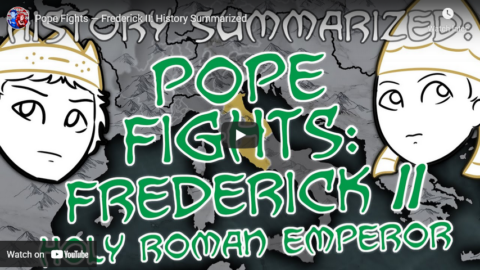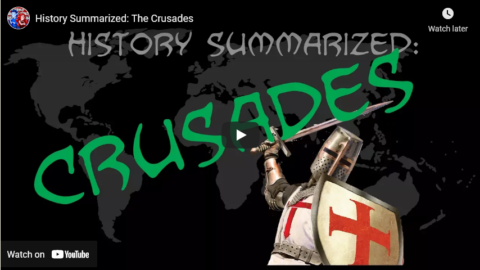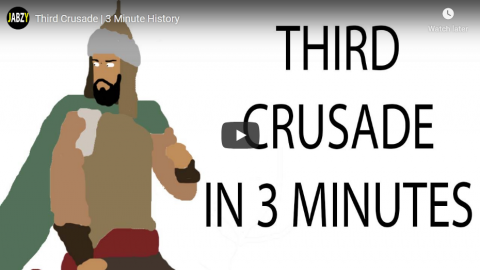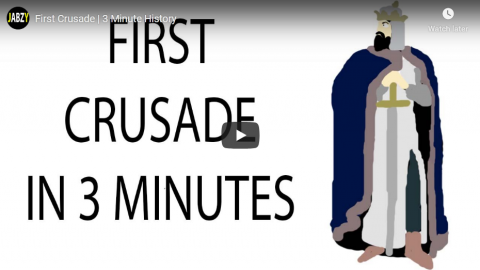seangabb
Published 29 Dec 2022This is a video record of a lecture given by Sean Gabb, in which he discusses the three Flavian Emperors who ruled between 69 and 98 AD — Vespasian, Titus, and Domitian. He also discusses the Jewish Revolt and the eruption of Vesuvius.
The Roman Empire was the last and the greatest of the ancient empires. It is the origin from which springs the history of Western Europe and those nations that descend from Western Europe.
(more…)
January 17, 2023
The Early Emperors, Part 11 – The Flavian Reconstruction
September 19, 2022
City Minutes: Crusader States
Overly Sarcastic Productions
Published 13 May 2022Crusading is one thing, but holding your new kingdoms is a much trickier business. See how the many Christian states of “Outremer” rolled with the punches to evolve in form and function over multiple centuries.
(more…)
June 3, 2022
The Crusades: Part 10 – The End of the Crusader Kingdoms
seangabb
Published 27 Mar 2021The Crusades are the defining event of the Middle Ages. They brought the very different civilisations of Western Europe, Byzantium and Islam into an extended period of both conflict and peaceful co-existence. Between January and March 2021, Sean Gabb explored this long encounter with his students. Here is one of his lectures. All student contributions have been removed.
(more…)
May 20, 2022
The Crusades: Part 7 – The Third Crusade
seangabb
Published 5 Mar 2021The Crusades are the defining event of the Middle Ages. They brought the very different civilisations of Western Europe, Byzantium and Islam into an extended period of both conflict and peaceful co-existence. Between January and March 2021, Sean Gabb explored this long encounter with his students. Here is one of his lectures. All student contributions have been removed.
(more…)
May 17, 2022
The Crusades: Part 6 — The Loss of Jerusalem
seangabb
Published 27 Feb 2021The Crusades are the defining event of the Middle Ages. They brought the very different civilisations of Western Europe, Byzantium and Islam into an extended period of both conflict and peaceful co-existence. Between January and March 2021, Sean Gabb explored this long encounter with his students. Here is one of his lectures. All student contributions have been removed.
(more…)
May 14, 2022
The Crusades: Part 5 – The Role of Women
seangabb
Published 19 Feb 2021The Crusades are the defining event of the Middle Ages. They brought the very different civilisations of Western Europe, Byzantium and Islam into an extended period of both conflict and peaceful co-existence. Between January and March 2021, Sean Gabb explored this long encounter with his students. Here is one of his lectures. All student contributions have been removed.
(more…)
May 10, 2022
The Crusades: Part 4 — Life in Outremer
seangabb
Published 11 Feb 2021The Crusades are the defining event of the Middle Ages. They brought the very different civilisations of Western Europe, Byzantium and Islam into an extended period of both conflict and peaceful co-existence. Between January and March 2021, Sean Gabb explored this long encounter with his students. Here is one of his lectures. All student contributions have been removed.
(more…)
May 7, 2022
The Crusades: Part 3 — The Crusader States
seangabb
Published 6 Feb 2021The Crusades are the defining event of the Middle Ages. They brought the very different civilisations of Western Europe, Byzantium and Islam into an extended period of both conflict and peaceful co-existence. Between January and March 2021, Sean Gabb explored this long encounter with his students. Here is one of his lectures. All student contributions have been removed.
(more…)
December 4, 2021
Pope Fights — Frederick II: History Summarized
Overly Sarcastic Productions
Published 3 Dec 2021GET YOUR PINS HERE: crowdmade.com/osp
pope fight. Pope Fight. POPE FIGHT. P O P E F I I I I I G H T!!!!
In this episode, Holy Roman Frederick II wants to hang out in Sicily, but gets dragged kicking and screaming into The Plot. Despite his palpable disinterest in playing diplomatic footsie with the Vatican, he becomes one of the most dangerous opponents the Papacy ever faced.SOURCES & Further Reading: Sicily: An Island at the Center of History by John Julius Norwich, Great Courses Lecture “Emperor Frederick II” from The High Middle Ages by Philip Daileader.
This video topic was requested by our patron Dr Angela J Black. Thank you Angela!
Our content is intended for teenage audiences and up.
PATREON: https://www.Patreon.com/OSP
PODCAST: https://overlysarcasticpodcast.transi…
DISCORD: https://discord.gg/osp
MERCH LINKS: http://rdbl.co/osp
OUR WEBSITE: https://www.OverlySarcasticProductions.com
Find us on Twitter: https://www.Twitter.com/OSPYouTube
Find us on Reddit: https://www.Reddit.com/r/OSP/
From the comments:
Overly Sarcastic Productions
2 hours ago
1:15 Wow emperor Henry sure did live for a long time, I had no idea. I could have sworn he actually died in 1197, but nope, the man lived right up through German Reunification. Wild.
-B
December 2, 2021
“Good idea, Judith. We shall fight the oppressors for your right to have babies, brother. Sister. Sorry.”
The power of Python compelled Stephen Green to write this:
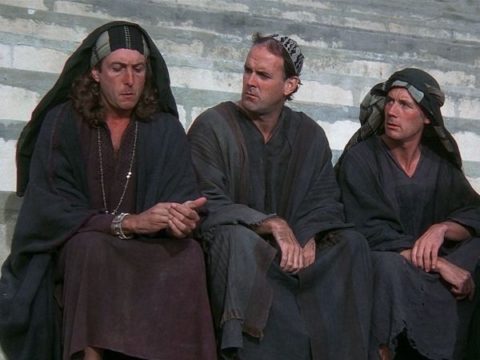
Stan: “I want to be a woman. From now on, I want you all to call me ‘Loretta’.”
Still from Monty Python’s Life of Brian, 1979.
Of all the jokes, gags, and barbs thrown in every direction, Jesus is the only figure shown respect. Monty Python trouper Eric Idle later said of Jesus, “What he’s saying isn’t mockable, it’s very decent stuff.”
For a non-believing, take-no-prisoners comedian like Idle, that’s practically a whole-hearted endorsement.
Instead, the film — Python’s only real film, the others were basically collections of sketches, even Holy Grail — is anti-authoritarian, anti-fanaticism, anti-nihilism, and anti-humorless prigs.
Life of Brian is, however, very pro-funny.
The Pythons even saved their sharpest barbs for political extremists and self-deluded lefties.
Case in point on that last observation: The classic Colosseum conversation between the would-be revolutionaries of the Judean People’s Front.
Or was that the People’s Front of Judea?
Regardless, take two minutes (clip below!) to bask in the comedic good sense that would get the cast and entire production crew canceled in our times.
The postmodern Left should probably cancel everyone who laughed at this scene, just to be safe.
Anyway, point-by-point, Monty Python satirically dissected the then-nascent cultural trends that have since come to dominate not only our culture, but also our politics and even our private lives.
Enjoy … although I will admit that re-watching this today, the laughs were a bit more bitter than they were when I first watched Life of Brian nearly 40 years ago.
July 27, 2021
History Summarized: The Crusades
Overly Sarcastic Productions
Published 11 Jun 2017Making a video exclusively about the crusades? That’s a bold strategy, Blue, let’s see how it pays off.
RELEVANT LINKS:
History Summarized: Islam: https://youtu.be/Uvq59FPgx88
History Summarized: Christianity: https://youtu.be/A86fIELxFds
History Summarized: Judaism: https://youtu.be/aKB6WduDwNE
History Summarized: Christianity, Judaism, and the Muslim Conquest https://wp.me/p2hpV6-gQv
History Summarized: Venice (Part 2): https://youtu.be/byMleAJ5kRs
History Summarized: Byzantine Empire: https://youtu.be/-ucHQVu8Dw0History Summarized: Abrahamic Religious Philosophy: https://youtu.be/B7myRRt0Mn8
PATREON: www.patreon.com/user?u=4664797
MERCH LINKS:
Shirts – https://overlysarcasticproducts.threa…
All the other stuff – http://www.cafepress.com/OverlySarcas…Find us on Twitter @OSPYouTube!
February 3, 2021
Fatah demands that Britain return Big Ben to its original Jerusalem home
Daniel Greenfield unravels the historical misconceptions that informed the demand:
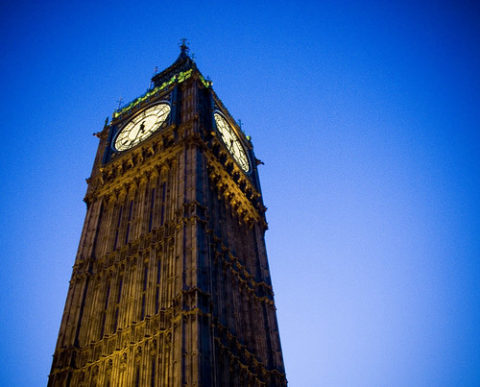
“Big Ben” by kev_zilla is licensed under CC BY-NC-ND 2.0
“The Jerusalem Clock is hidden in London today,” Fatah, the political movement behind the PLO and the Palestinian Authority, asserts in a post titled, “Jerusalem Stolen Clock”.
It goes on to claim that the British military ordered the clock tower dismantled. Then the “British moved the clock first to a new tower across from the municipality of Jerusalem, and transferred it to the British Museum in London, to become the famous British icon, ‘Big Ben’.”
How did Big Ben, which was built in 1859, become a Muslim clock tower from the 20th century?
There are some other slight differences between London’s Big Ben and the “stolen clock” such as the fact that Big Ben is 316 feet tall while the “Palestinian” clock tower was only 42 feet.
But the story of the “Palestinian clock” is also the story of the entire myth of “Palestine”.
When you believe that the Jerusalem of King David and King Solomon was originally yours, you can just as easily believe that London’s Big Ben was originally the property of “Palestine”.
The “Palestinian clock” is as real as “Palestine”. The myth of a “Palestinian” people propounded by Fatah which has spent decades killing over it is also the story of the “Palestinian clock”.
There’s no more of a “Palestinian” people who were dispossessed by the Jews than Big Ben is a “Palestinian” clock stolen and passed off as London’s Big Ben. Both are fake history built out of resentments and garbled stories whose context has been lost, but whose hatreds remain real.
There were never any Palestinians. When the clock was built the region had been part of the Ottoman Empire, the last Caliphate until ISIS. The caliphates had settled it with Arab Muslim clans who dominated Christian refugees fleeing Muslim persecution, along with groups of other minorities from escaped slaves to gypsies, along with the indigenous Jewish population.
The Ottomans had become obsessed with clock towers as a symbol of their empire. But the Ottomans hadn’t invented them, they had adopted them from Europe, and planted them in major cities of the empire to create a common sense of time and belonging for their subjects.
Sultan Abdul Hamid II, the last real sultan of the empire, obsessively erected clock towers to show off how modern the Ottoman Empire was. But by then the Empire was anything but modern and Hamid’s clock tower craze was powered by his German allies. Kaiser Wilhelm II gave Hamid a batch of clocks at the turn of the century which the Turks put into clock towers.
The Ottoman Empire erected some of its clock towers in Israel. These clock towers utilized the talents and funds of the indigenous Jewish and the Arab Muslim settler population. The clock tower projects in Israel began in 1901 which is also the date when Wilhelm sent Hamid a whole bunch of clocks. One of these clock towers was stuck on Jerusalem’s Jaffa Gate which Hamid had previously cut a hole in so that the Kaiser could enter Jerusalem in his tall plumed helmet.
H/T to Kate at SDA for the link.
July 24, 2020
QotD: A death in the Roman Empire
The women who came to tend the tomb in the garden had no doubt that their Lord was dead. They had personally arrayed his body in shining white vestments, and then, when all was ready, laid his physical remains to rest. Rejected as he had been by his own people, legally condemned as an enemy of Rome, brought to a squalid and ignominious end, his defeat had seemed total. What victory could there possibly be in the wake of such a death?
Yet then something miraculous happened. Spreading from east to west across the Mediterranean, travelling along the great network of roads and shipping lanes that constituted the arteries of the Roman Empire, news began to spread that this man whose mortal remains supposedly lay entombed in the grave had been seen alive. Most people, of course, scoffed at such reports — but there were some, small communities of believers, who did not. These, even as the decades passed, kept the faith: the conviction that their saviour would come again, that he would reign, in the words of a widely circulated prophecy, as “the king of Jerusalem”, that he would bring to groaning humanity a universal peace.
In the event, Nero did not come again. Despite the various imposters who appeared in the wake of his death in AD 68, and the fact that, centuries later, there were cities in the eastern reaches of the Roman Empire that still honoured his memory, his fate was to be commemorated, not as a saviour, but as a monster. And so, in numerous ways, he was. His readiness to have members of his own family — mother, brother, wife — put to death ensured that when he himself died the dynasty of the Caesars perished with him.
His sex games were notorious. He was darkly rumoured to have set fire to Rome. By the time that Suetonius, half a century after his death, came to write his biography, the details of his life could be structured almost entirely as a catalogue of deviancies and crimes. “Insolence, an uninhibited sexual appetite, dissipation, greed, cruelty: these were the vices which, to begin with — because he gave expression to them only secretly and incrementally — might well have been chalked up as the excesses of youth, had it not been manifest to everyone even at the time that they were failings, not of age, but of character.”
Nero’s rule had become one protracted blasphemy against the customs of the Roman state. These, hallowed by the centuries, enabled the people of a city that had conquered most of the known world to feel a sense of communion still with the mos maiorum: the customs of their distant ancestors. To no class of society was this more important than the Senate, which still, despite the collapse of Rome’s venerable republican order and its replacement by the autocracy of the Caesars, cherished its time-honoured role as the guardians of tradition.
Tom Holland, “When Christ conquered Caesar”, UnHerd, 2020-04-10.
March 31, 2020
Third Crusade | 3 Minute History
Jabzy
Published 25 Jul 2015Thanks to Xios, Alan Haskayne, Lachlan Lindenmayer, William Crabb, Derpvic, Seth Reeves and all my other Patrons. If you want to help out – https://www.patreon.com/Jabzy?ty=h

